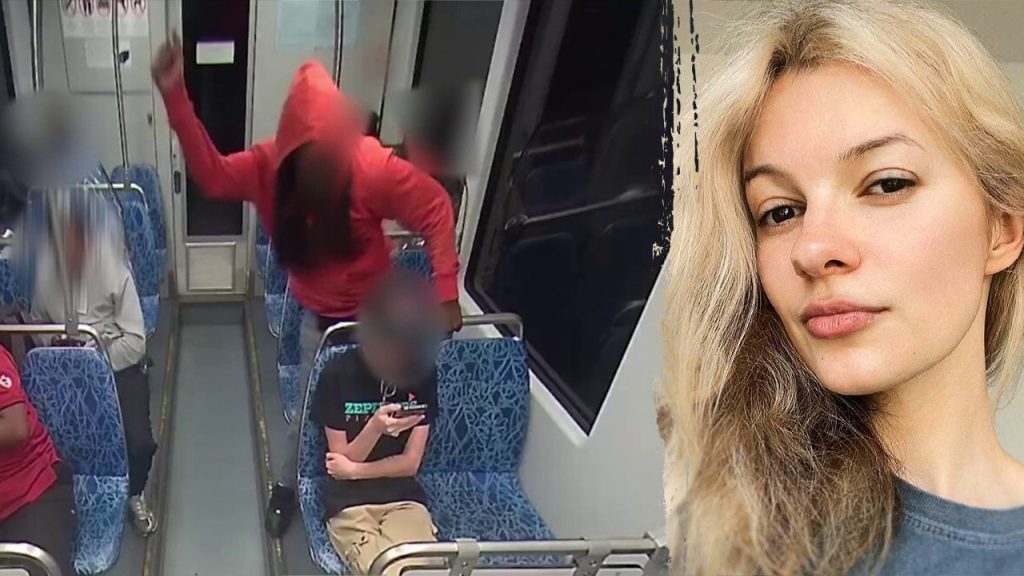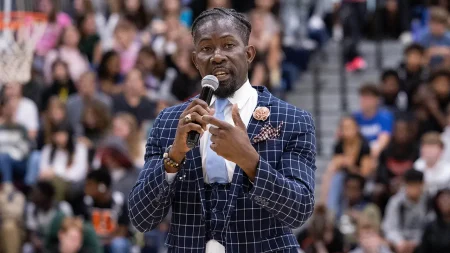Tragedy on the Charlotte Light Rail: A Community in Mourning and a System Under Scrutiny
In a case that has shaken the Charlotte community and raised serious concerns about public transit safety, Decarlos Dejuan Brown Jr. has been indicted for first-degree murder in the death of Ukrainian refugee Iryna Zarutska. The grand jury’s decision advances the case to Superior Court, with Brown facing potential life imprisonment or even the death penalty if convicted. The indictment specifies that the August 22, 2025 killing was committed “with malice aforethought,” a legal term indicating willful intent. This formal charge represents a significant step in the legal process, with Brown’s next court appearance scheduled for October 16. The case has drawn particular attention not only for its apparent randomness but also because surveillance video captured the attack, leading to Brown’s swift apprehension.
The tragic circumstances surrounding Zarutska’s death have resonated deeply throughout Charlotte and beyond. She had fled Ukraine to escape war, only to lose her life in what should have been a safe haven. Working at a local pizzeria and studying English at a community college, Zarutska was simply returning home from work when she was fatally stabbed near the Camden light rail station. Her family, speaking through their attorney, described her as “kind and hardworking,” expressing that they are “heartbroken beyond words.” Their grief is compounded by the cruel irony that Zarutska “came here to find peace and safety and instead her life was stolen from her in the most horrific way.” The family has emphasized their determination to seek justice for Iryna while also advocating for broader public safety improvements, noting poignantly that “this could have been anyone riding the light rail that night.”
The suspect’s background has raised questions about systemic failures that may have contributed to this tragedy. Brown has been arrested 14 times over the past 12 years and has a documented history of mental health issues. Following his arrest, the court ordered him to undergo a 60-day mental health evaluation at a regional hospital to determine his capacity to stand trial, despite prior local evaluations. This aspect of the case highlights ongoing challenges in addressing mental health within the criminal justice system and preventative interventions. Brown’s family history of criminal activity has also come under scrutiny, with his brother suggesting the killing could have been “prevented,” though specifics of this claim were not elaborated upon in public statements. U.S. Attorney General Pam Bondi has emphasized the brutality of the crime, noting that “this young woman died a horrific, horrific death,” and confirming that seeking the death penalty remains “on the table” following the indictment.
Zarutska’s death has cast a harsh spotlight on safety concerns throughout Charlotte’s public transit system. In the days following her murder, several other violent incidents were reported in or around the light rail. These included a passenger being bitten on both arms while riding a train, an assault on a different platform, an armed robbery of a homeless man, and a sexual assault. The clustering of these incidents within a short timeframe has intensified public anxiety and calls for improved security measures. These reports have transformed what might have been viewed as an isolated tragedy into what many see as evidence of a systemic safety problem requiring immediate attention from city officials and transit authorities. The incidents have been particularly alarming for daily commuters who rely on the light rail system and now must contend with heightened concerns about their personal safety.
Charlotte Mayor Vi Lyles has responded to the growing public concern by reaffirming the city’s commitment to enhancing public safety, particularly on the transit system. Specific measures already underway include the addition of nearly 30 additional security personnel to the Blue Line. “City leaders have been working to improve safety in our community and on our transit system and we will continue to do so,” Lyles stated in a public message, adding, “We are committed to working with everyone to ensure that our community continues to be safe. I believe in Charlotte, and we will come out stronger together.” These reassurances come at a critical time when public confidence in the safety of essential infrastructure has been significantly shaken. The effectiveness of these measures will likely be closely monitored by citizens and advocacy groups in the coming months.
The murder of Iryna Zarutska represents more than just a single tragedy—it has become a focal point for broader discussions about public safety, mental health intervention, immigration, and the responsibilities of municipal governments to protect their citizens. For the Ukrainian refugee community in Charlotte, the killing has added another layer of trauma to lives already marked by displacement and war. For transit users, it has transformed routine commutes into anxiety-inducing journeys. For city officials, it presents an urgent challenge to restore public confidence in essential services. As Brown’s case proceeds through the legal system, many questions remain about how this tragedy could have been prevented and what changes might ensure that Charlotte’s public spaces become safer for all residents. The outcome of this case, both in terms of justice for Zarutska and policy reforms that might emerge, will be closely watched not just in Charlotte but in cities across the country grappling with similar issues of public safety, mental health, and the protection of vulnerable populations.







